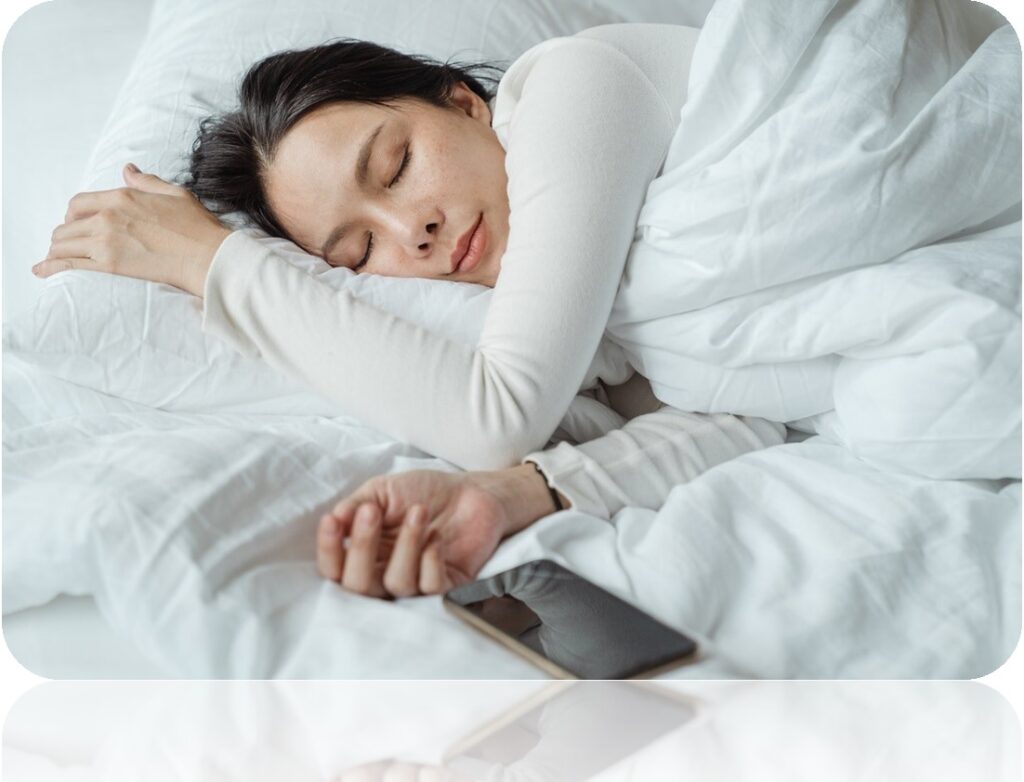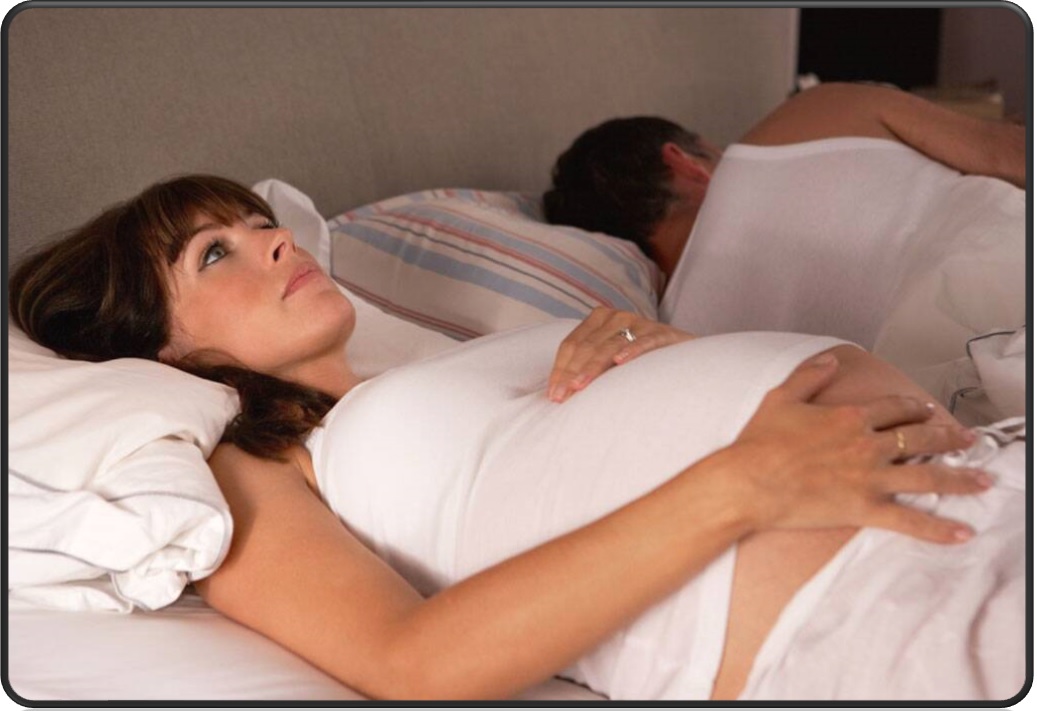Common causes of insomnia (sleep disorder) include lack of sleep, irregular sleep patterns, psychological disorders such as anxiety and depression, physical illness or pain, stress, neurological problems, medication, and certain sleep disorders.
What is Insomnia?
Insomnia is a common sleepless disorder that makes sleep an onerous act, hard to stay asleep, or causes you to arise oversoon and not be able to get back to sleep. You may still feel fatigued when you arise. Insomnia can affect not only energy levels and mood but also health, work performance, and quality of life.
Causes of Insomnia:
Every single disorder has some causes in the background that are reasons for this disorder. These causes manifested the disorder whether directly or indirectly in various ways. Insomnia is also a disorder of sleep having a vast range of causes. Let’s dig into the details of such insomnia-causing factors. We will classify them into four categories:
- Medication usage
- Depression and anxiety
- Physical illness or pain
- Neurological problems

1- Depression:
The foremost cause of insomnia is considered depression or anxiety. There is a probable association between depression and insomnia or lack of sleep. In fact, one of the common symptoms of depression is insomnia because depression propels you towards negative thoughts and overthinking. You may experience a feeling of being powerless to fall and stay asleep.
2- Medication usage:
There is a vast range of medications that caused insomnia. Different medications can also spike insomnia. Selective serotonin reuptake inhibitors, dopamine agonists, anticonvulsants, steroids, psychostimulants and amphetamines, and Theophylline are well-known causes of insomnia.
a)- Asthma medication:
Insomnia is also very common in patients with Asthma. It is reported that thirty-seven percent patients of with Asthma have clinically proven insomnia. Theophylline is a medication for Asthma that is used to alleviate inflammation and help clear air passage, causes insomnia as well as fidgeting during the daytime.
b)- Heart disorder medications:
Most heart disease treating medications may cause sleep disorders. Cardiac medication that is used to treat heart rhythmic issues can cause insomnia or other disorder related to sleep. Alpha-blockers ( That lower blood pressure by inhibiting neurotransmitter norepinephrine by tightening muscles in walls of veins and arteries), beta-blocker( for treating high blood pressure ), and angina, increases the chance of insomnia.
c)- Chloestrol medication:
Research has manifested that fat-soluble statins (a group of drugs that inhibits the high levels of cholesterol in the body such as lovastatin and simvastatin) are leading causes of insomnia and nightmares.
3- Physical illness and pain:
Sometimes physical illness or pain may also spike insomnia. People suffering from chronic pains whether major issues such as back pain, fibromyalgia, cancer treatment, or even minor issues such as muscle spasms and muscle aches or other mild issues of pain are common causes to cause insomnia. It is also reported recently that up to 2/3 of patients with chronic pain are also exposed to insomnia or other linked sleep disorder. Usually, patients with chronic pain or illness feel drowsy during the daytime because they can not have proper sleep at night.
Some other factors causing insomnia:
Besides these causes of insomnia that are discussed above, there are some other common factors causing insomnia. Have a look at these factors!
- The inadequate habit of sleep
- Eating too much late in the evening
- Stressful vibes or thoughts about finance, family, work, new projects of life, health, school, etc
- Jet lag
What does jet lag mean?
The lag disorder is also known as jet lag, it’s a temporary sleep issue and people can be affected easily by it. It quickly travels across various time zones. It is not considered a dangerous disorder because it generally does not requires treatment and can be improved within days, Jet lag may occur when there occurs a disturbance in a person’s sleep-wake pattern as the body has its own circadian rhythms that stimulated the body when to sleep and when to awake.
4- Neurological problems:
Various neurological disorders may also cause insomnia as restless leg syndrome, narcolepsy, circadian rhythm disorder, and central nervous system hypersomnia.
How do alcoholic consumption and caffeine cause insomnia?
Our bodies naturally produce adenosine which induces sleep and makes us sleepy and fatigued. When we consume caffeine it induces short-term benefits but after its frequent usage, it enters in system and inhibits the adenosine from the brain, and causes us to awaken. In the same way, alcoholic consumption may lead to insomnia. You may feel relaxed and sleep for some hours after consumption but it causes you to arise and then makes it arduous to go back to sleep. Alcohol also has a negative effect on Rapid eye movement disorder ( REM). REM is thought to be the deepest sleep in which you feel relaxed and see the most vivid dreams.

Types of Insomnia:
Usually, four types of insomnia are discussed which are briefly described below:
1- Acute Insomnia:
Acute insomnia is the most common and initial insomnia which is a short-term type of sleep disorder and can last up to days to a week. It is considered that major causes of acute insomnia are experiencing sudden stress or anxiety, loss of a loved one, and starting a new work.
2- Chronic Insomnia:
When acute insomnia is prolonged such as you feel the symptoms and difficulty in falling asleep for at least three nights per week or a longer period of three months you feel this difficulty this insomnia would be chronic insomnia which needs treatment.
3- Onset Insomnia:
Onset insomnia may vary from acute to chronic insomnia. Sleep onset is an alteration from wakefulness into sleep. It usually transmits from non-rapid eye movement( NREM) sleep disorder but under the specific condition of narcolepsy. It is probable to transit from direct weakness to REM( Rapid eye movement) sleep disorder.
4- Maintenance Insomnia:
Middle insomnia is also referred to as sleep maintenance insomnia. It is usually an extremely awakening state almost throughout the entire night. Maintenance insomnia may also be caused by mental health conditions such as depression, gastroesophageal reflux, etc.
5- Fatal Familial Insomnia
Fatal familial insomnia is a very rare genetic disorder that causes sleep disturbance as a characteristic symptom. Other symptoms include speech issues, coordination problems, and dementia. Sleep problems usually begin insidiously and worsen over time, causing significant physical and mental deterioration.
6- Pregnancy Insomnia
Sleep disturbances during pregnancy are common and cause significant morbidity. While women can suffer from insomnia at all stages of pregnancy, many suffer from insomnia as other pregnancy symptoms increase and fast-growing baby bumps make it harder than ever to settle into bed. Women experience insomnia during the second and third trimesters of pregnancy. Pregnancy insomnia tends to get worse as the pregnancy progresses.

Common Symptoms of Insomnia:
Here we will point out some common symptoms of insomnia which are listed below:
- Arduous to sleep
- Arising too early and can not back to sleep
- Difficulty to have catnap during the day even if you are tired
- Feeling of drowsiness and grumpy during daytime
- Awakening several times during the night
- Experiencing tiredness even after you wake up
The Effects of insomnia on Mental Health:
Scientific research about sleeplessness has revealed that deprivation of sleep may cause a reduction in alertness and attentiveness. It gets hard to pay heed and focus on something so you easily get confused. In this way, this defect of the brain hampers your capability to do a task efficiently which requires logical thoughts or complete vision. You may have impaired judgment for any decision. In a study, 40 percent of participants that experimented with insomnia had a mental illness or other serious mental issues.
Effect of insomnia on physical health:
It is reported by some scientists that sleep disorder or insomnia is associated with the defection of hormone that controls feelings of hunger and fullness. Chronic insomnia may lead to you serious and high risk of weight gain and other diseases linked to it such as diabetes, hypertension, and cardiac disorders( heart stroke) that may prove fatal in many cases. Some other effects of insomnia on your physical health are :
- Lower sex drive
- Anxiety
- Reduced immune function
- Low digestion
- Redder eyes
- Dark circles under eyes
- Overwhelmed sadness
- Wrinkles around the eyes
- more droopy corners of the mouth
- Hanging eyelids
Diagnosis of Insomnia:
Basically, there are no specialized tests to spot the disorder of insomnia. If you are facing any symptoms you must visit your doctor he will ask you a questionnaire if you will tell him that these sleep arrhythmias are prolonging from three days to weeks. These questions may be related to your sleep history and symptoms. The doctor may notice sleep disorder symptoms including a mental health exam, questions, polysomnogram, and sleep-awake pattern assessment called actigraphy.
How to Cure Insomnia in a Natural Way?
Here we will discuss some natural and health-friendly methods to reduce this disorder of insomnia:
- Research manifested that relaxation techniques may prove beneficial to curing insomnia which is chronic
- Exercise may help boost well-being and fitness. Exercise in the early morning is considered more effective as well as in the evening in this regard.
- Don’t use LED screens before one or two hours of sleep when you are in the bed
- Take a mild hot shower at end of the day for relaxing the mind
- Take light meals at least two hours before bed
- Avoid caffeine, alcohol, nicotine, or any other chemical which can hinder sleep’s natural rhythms.

Medication treatment of insomnia:
Different medications are in use for the treatment of insomnia. Here are some basic and important medications depicted below:
- Triazolam ( short-acting)
- Estazolam and Temazepam ( intermediate acting)
- Quazepam and Flurazepam ( long acting)
Temazepam is mostly prescribed medication for the treatment of insomnia.
Therapies for the treatment of insomnia:
Actually, light therapies are mostly prescribed for insomnia treatment. The most widely important therapy in this issue is CBT ( Cognitive behavioral therapy).
CBT( Cognitive Behavioral Therapy):
Cognitive therapy is considered the best way to treat insomnia. It’s a kind of talk therapy technique that helps you deal with the problems that constantly disturb you and threaten your sleep and mental health. In this therapy, psychiatrists identify the root cause of your disorder with symptoms by simply talking to you in a polite way that makes you feel comfortable and relaxed while talking. When any sleep disorder or insomnia is indicated, you will be prescribed natural remedies or sleep-inducing pills as medication with advice to use a healthy diet and relaxed routine.


